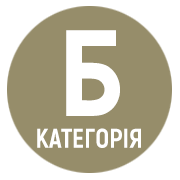Publication policy
Publication policy
This journal meets the requirements of the Law of Ukraine for professional journals of List B in psychology.
This journal adheres to high international and domestic standards for the ethics of scientific research. Therefore it accepts papers in the form of anonymous manuscripts that pass on double-blind peer review by anonymous reviewers from a cohort of psychoanalytic specialists. Two reviewers independently evaluate the submitted article according to the criteria of compliance with the journal's purpose, logic, and comprehensibility of the presented content, ethics, and compliance with the current state of psychoanalysis. In this way, the objectivity of the assessment and the validity of the feedback received by the article's author is achieved. Excerpts from the review forms filled out by the reviewers are sent to the article's author, who must present the changes proposed by the reviewers and comment on the review in writing. If the author does not agree with some corrections, their justification is discussed with the reviewer who suggested them. In justified cases, a third reviewer can be invited for consultation.
We note that according to international requirements, the text of the publication, which contains empirical research involving human subjects, should have a clear description of how the written consent of the study participants was obtained and which institution approved the ethics of the study. For example: "The collection of written consent to participate in the study took place together with the main survey (in paper form / in the form of an electronic signature)." "The ethical approval of the research project was confirmed by the Ethics Commission of the National Psychological Association (Protocol No. ... dated 00.00.0000)."
An article that contains a description of a clinical case should be set out, taking into account reservations to preserve the confidentiality of the client/patient. We advise authors of articles describing a clinical case to read the Code of Ethics of the NPA and contact colleagues for supervision or consultation about the possibility of changing or concealing certain details of the case for the protection of the client/patient.
Privacy Statement
Names and e-mail addresses entered on the site of this journal will be used exclusively for the purposes indicated in this journal and will not be used for any other purpose or provided to other persons and organizations.
Ghosting and Plagiarism Policy
To combat "ghost writing" and "guest authorship," authors are asked to:
– disclose their contribution to the article and institutional affiliation of all authors participating in the publication;
- sign the author's agreement, which will be sent to those authors whose articles will be accepted.
Any sign of plagiarism or copyright infringement will be reported by the editorial team to the appropriate authorities.
Journal articles are checked for plagiarism using software (an example would be StrikePlagiarism.com from the Polish company Plagiat.pl.).
Copyright
Papers of the "Ukrainian Psychoanalytic Journal" are licensed in accordance with the international license (Attribution-Non Commercial-No Derivatives 4.0 International (CC BY-NC-ND 4.0), which allows others to share the work with reference to the authors of the work and attribution of the first publication in this journal, but prohibits commercial use and reproduction of published works. For more details, please visit the link – https://creativecommons.org/licenses/by-nc-nd/4.0/
The copyright and intellectual property of each author's article belong to its authors. The copyright and intellectual property of each translated article belongs to its authors or, in case of expiration of such ownership, to the author of the translation.



